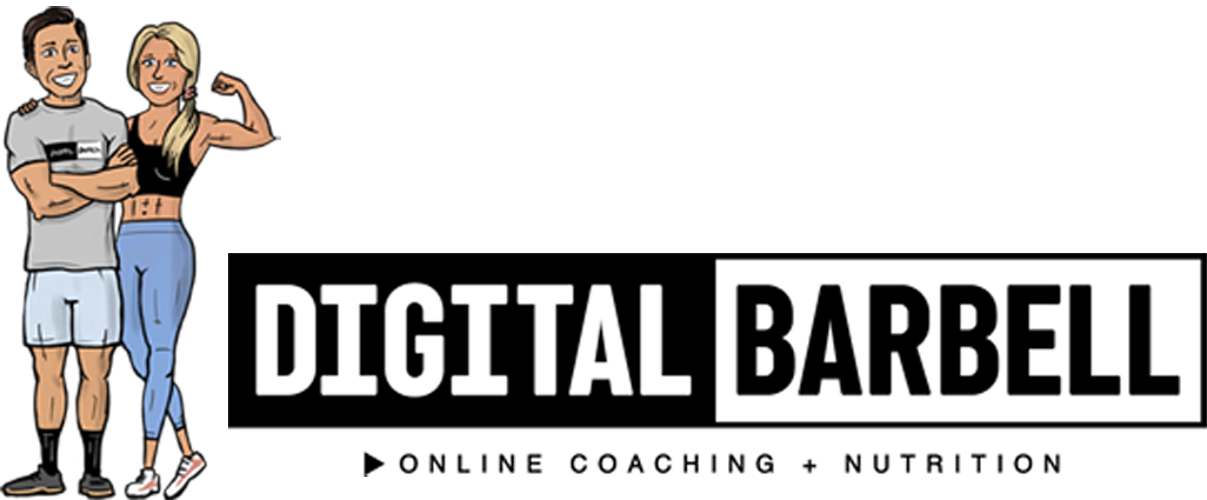How Does Macronutrient Breakdown Affect Body Composition?
Optimize Your Physique With Your Macros
When you're talking about weight loss or weight gain, you just can’t ignore calories. Calories in vs. calories out is what ultimately affects whether you gain or lose weight.
BUT!
That doesn't mean that all calories and all foods are the same. Let's talk about macronutrients. Macronutrients, or "macros", are categories we put foods into to describe what they are made up of, and the role that they play in our bodies.
The three macros we’re talking about today are protein, carbohydrate, and fat.
The way that you choose to break your calories up across these macros affects the way you look and how much muscle vs. fat you build, lose and maintain (which you can hear even more about on this episode of the Digital Barbell podcast).
Let's start with protein since it’s arguably the most important.
How protein can improve your body composition, and how much protein should you eat per day?
Protein from animal sources provides you with the 9 essential amino acids that are the building blocks of muscle. Your body can’t make these amino acids on its own, so you have to get them from food.
Bottom line? If you eat very little protein, you’ll have very little muscle. Sad, right?
Since your muscles give you the strength to live, you can imagine that having lower muscle mass as you age is a bad thing.
Pro tip: Protein is also very filling, so if you are eating in a caloric deficit to lose weight, skewing your allotted calories toward protein can be very helpful. (Psst…Here’s a handy protein cheat sheet to help you out.)
We can't overstate the importance of getting enough protein. For most adults, we recommend aiming to get about 1g of protein per lb that you weigh each day.
Of course, there are exceptions, but that’s a great starting place.
When you fuel your body with adequate protein you’ll start to see changes in the mirror and in the way your clothes fit. You're going to like it.
Just like these happy clients of ours…
Let's move on to carbohydrates.
How can carbs help you improve your body composition, and how many carbs should you eat per day?
Carbs are your fuel!
When you eat carbs, they’re converted into glucose and used for your energy demands.
So just like gasoline in your car, if you push your body hard, you need more carbohydrates to meet the demands.
If you're super active or do high-intensity exercise like CrossFit or heavy lifting, you're going to want adequate carbs to get the best results.
Fun fact: Carbohydrates increase the amount of water that your body retains. That’s why folks who go on low-carb diets drop several lbs quickly.
But spoiler alert: They’ve lost water weight, not fat
So, carbs affect your body composition in that they provide the fuel that allows you to do the work that it takes to build and maintain muscle, as well as give those muscles a full-looking appearance.
But don’t carbs make you gain fat you ask? Nope.
As long as the carbohydrates you eat don’t put you into a calorie surplus, those carbs can’t make you gain fat.
Speaking of fat, let’s talk about how dietary fat affects body composition.
How much fat should you eat to improve your body composition?
You need fat in your diet for healthy cell absorption, hormone regulation, and hair and skin health among other things. However, most people don’t need a ton of dietary fat per day to keep these things optimal.
When we start working with a client we often find that they are eating about 2 to 3 times the amount of fat per day than is “necessary”.
Just like carbohydrates, those levels of fat intake won’t lead to fat gain unless it puts them into a caloric surplus.
HOWEVER, research has shown that when you are eating in a caloric surplus, dietary fat is MUCH easier to be converted to body fat than both carbohydrates and protein.
Here’s a big fat tip for ya: If you’re eating in a surplus and don’t want to put on body fat, keep your dietary fat in check!
So to recap…
For optimal body composition, eat enough protein to maximize your muscle mass. Somewhere around 1g per day per pound that you weigh. Eat plenty of carbohydrates to fuel your workouts, but not so much that you store body fat. Keep your dietary fat at levels that support your health, but not high enough to put you into a calorie surplus.
Want some help setting your individual macros based on y our goals? We’ve got you covered with our free calorie and macro-nutrient calculator.
And if you’d like more personalized help, that’s what we’re here for. We’re proud to offer nutrition coaching in addition to personal online training, and we’d love to welcome you to the Digital Barbell team.
To apply for coaching, reach out here today.
All our best,
Jonathan and Blakley
P.S. Since you’re interested in body composition… Be sure and check out Episodes 158 and 166 of our Podcast. They’re all about eating, and training to improve your body composition. Click below!









